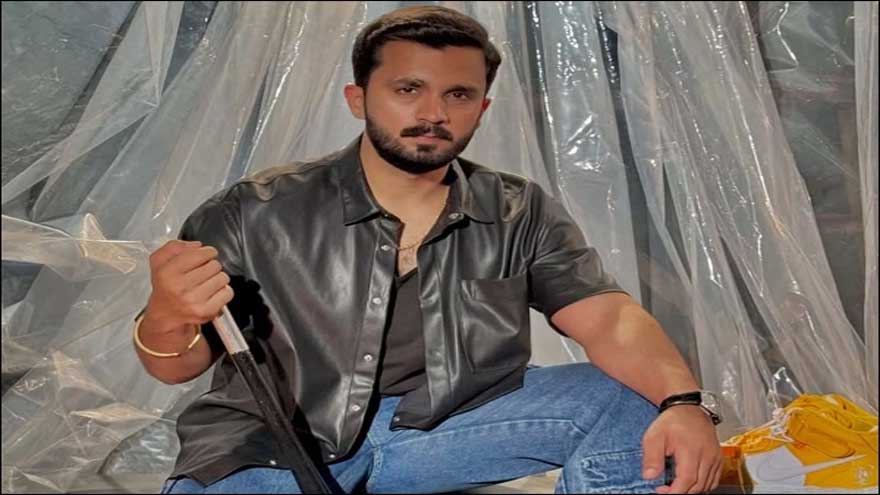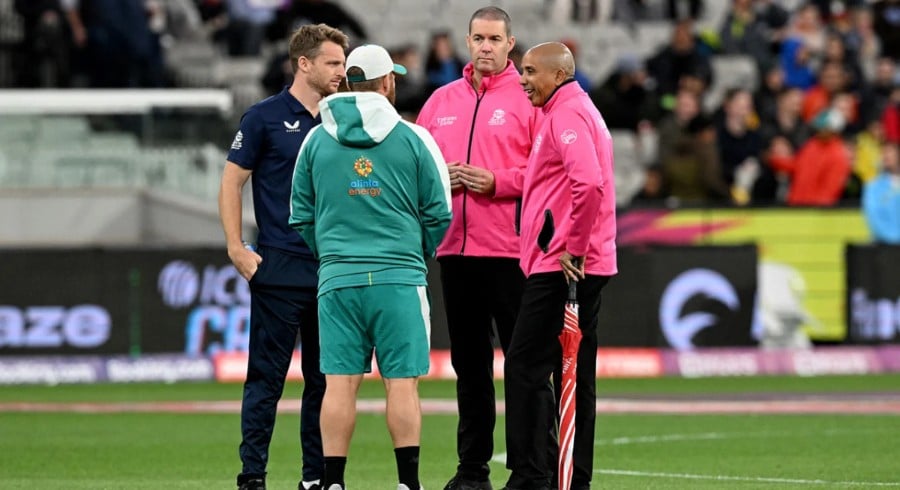Former chief justice of Pakistan (CJP) Tassaduq Hussain Jillani on Monday recused himself from heading a one-man inquiry commission to probe allegations of interference by intelligence agencies in judicial affairs as the Supreme Court took suo motu notice of the matter.
Last week, it emerged that six Islamabad High Court (IHC) judges — out of a total strength of eight — wrote a startling letter to the Supreme Judicial Council (SJC) members, regarding attempts to pressure judges through the abduction and torture of their relatives as well as secret surveillance inside their homes.
The letter was signed by judges Mohsin Akhtar Kayani, Tariq Mehmood Jahangiri, Babar Sattar, Sardar Ejaz Ishaq Khan, Arbab Muhammad Tahir and Saman Rafat Imtiaz.
A day later, calls emerged from various quarters for a probe into the investigation, amid which CJP Qazi Faez Isa summoned a full court meeting of the SC judges.
On Thursday, Prime Minister Shehbaz Sharif met CJP Isa, and the two decided to form a commission to investigate the concerns of interference in judicial affairs following the cabinet’s approval.
On Saturday, the federal cabinet approved the constitution of an inquiry commission headed by ex-CJP Jillani to probe the allegations and decide whether these are true or otherwise. Under the Terms of Reference (ToR), the inquiry commission would fully probe the allegations levelled by the IHC judges and decide whether these are true or otherwise. It would also investigate whether any personnel of intelligence agencies were directly responsible for interfering in judicial matters.
On Sunday, lawyers and civil society members — in a joint letter — had urged the top court to take “cognisance of the matter in its jurisdiction under Article 184(3) of the Constitution as this issue eminently relates to public interest and to the enforcement of fundamental rights”.
They had called on the top court to initiate suo motu proceedings as it rejected the “powerless” one-man commission appointed by the federal cabinet to probe the claims. The letter said the apex court should form a bench of all available judges to hear the matter and proceedings should be telecast live for public consumption. It also urged the court to look into the allegations levelled by retired justice Shaukat Siddiqui, besides the recent claims of meddling in judicial affairs.
In a letter addressed to PM Shehbaz today, a copy of which is available with Dawn.com, Jillani thanked the premier and the federal cabinet for reposing confidence in him to head the commission. He also expressed gratitude to CJP Isa and Justice Mansoor Ali Shah for expressing confidence in him.
Jillani said that he had gone through the letter by the IHC judges, the ToRs approved by the federal cabinet and Article 209.
Article 209 of the Constitution empowers the SJC to carry out inquiries into the capacity and conduct of Supreme Court and high court judges.
“Since the letter is addressed to the members of SJC and its chairman the chief justice of Pakistan, it would be violative of judicial propriety for me to inquire into a matter which may fall within the jurisdiction of a constitutional body which is the SJC or the Supreme Court of Pakistan itself,” he said.
He further said that the ToRs for the inquiry were “strictly not germane to the subject matter of the letter”, noting that the IHC judges had asked the SJC for guidance.
“Towards the end the request made in the letter is for an ‘institutional consultation’ in terms of the mechanism suggested in the said letter. Though the letter in question may not strictly fall within the parameters of Article 209 of the Constitution, but the honourable chief justice of Pakistan being a paterfamilias may address and resolve the issues raised in the letter at the institutional level,” he said, adding that he was recusing himself from heading the commission.
SC takes suo motu notice
Meanwhile, the top court took suo motu notice of the allegations levelled by the six IHC judges and constituted a seven-member bench to hear the matter.
According to the roster issued today, the bench will comprise the chief justice, Justice Syed Mansoor Ali Shah, Justice Yahya Afridi, Justice Jamal Khan Mandokhail, Justice Athar Minallah, Justice Musarrat Hilali and Justice Naeem Akhtar Afghan — all available judges on principal seat Islamabad.
The case will be taken up on Wednesday (April 3) at 11:30am.
The development came under discussion in today’s National Assembly session when PTI leader Omar Ayub raised the issue. Information Minister Attaullah Tarar subsequently said the matter was now sub-judice after the apex court’s suo motu notice.
“[Therefore,] this matter should not be subjected to politicking. Any matter that is sub-judice will not be brought up for debate,” Tarar said amid protests from the opposition benches.
Contents of letter by IHC judges
Dated March 25, the letter was signed by IHC Justices Mohsin Akhtar Kayani, Tariq Mehmood Jahangiri, Babar Sattar, Sardar Ejaz Ishaq Khan, Arbab Muhammad Tahir and Saman Rafat Imtiaz.
It mentioned seven instances of alleged interference and intimidation “to influence the outcome of cases of interest” by the intelligence officials, pointing out that when two out of three judges in the bench hearing the plea to disqualify PTI leader Imran Khan for concealing his alleged daughter opined that the case was not maintainable, they were pressured by “operatives of the ISI” through friends and relatives.
The situation got so stressful that one of the judges had to be admitted to hospital due to high blood pressure, the letter said.
According to the six judges, the matter was brought to the notice of the IHC chief justice and the then-CJP. The former informed the judges that he had “spoken to the DG-C of ISI and had been assured that no official from ISI will approach the judges of the IHC”.
The letter complained that “interference on the part of intelligence operatives” continued even after IHC CJ’s assurance.
It also referred to the abduction of an IHC judge’s brother-in-law by armed men who claimed to be ISI operatives. The victim was “administered electric shocks” and “forced to record a video” making false allegations, apparently against the judge.
“Subsequently, a complaint was filed against the judge of IHC before the SJC, accompanied by an orchestrated media campaign to bring pressure to bear upon the judge to resign.”
The letter revealed that in May 2023, an IHC inspection judge reported to the chief justice that district court judges were being intimidated and crackers were thrown into the house of one additional district and sessions judge.
The judge was even called to the IHC to verify the claims which he confirmed. But instead of probing the allegations, the judge “was made officer on special duty and transferred to IHC, before being sent back to Punjab as he was a judicial officer on deputation”.
The letter said that last year, during routine maintenance, an IHC judge found that his official residence had been bugged with spy cameras concealed in his drawing room and bedroom.
When data from surveillance equipment was recovered, it showed that “private videos of the judge and his family members” were stored. “The matter was brought to the attention of the IHC chief justice. There has been no determination of who installed the equipment and who is to be held accountable,” the letter added.
Along with their letter to the SJC, the six judges also attached copies of letters written to Justice Farooq on May 10, 2023 and Feb 12, 2024.
The letters mentioned, among other complaints, efforts of Inter Services Intelligence (ISI) personnel to pressurise IHC judges and probe into the tax records of at least one judge “to seek a certain outcome”.
They added that it was imperative to determine whether there was a “policy on the part of the executive … implemented by intelligence operatives” to intimidate judges.
“[The] allegations of interference by operatives of ISI have been dealt with and relief has been granted to a former judge of IHC who was wronged. We believe that while such action was necessary, it may not be sufficient,” the letter said about Justice Siddiqui’s case.
The judges noted that the SJC’s code of conduct for judges did not outline the response to such incidents “that are tantamount to intimidation and interfere with judicial independence”.
They called for a judicial convention to discuss the interference of intelligence officials “that undermines independence of the judiciary”.
The consultation would help the Supreme Court to determine a course of action that judges could take “when they find themselves at the receiving end”, the letter said.





